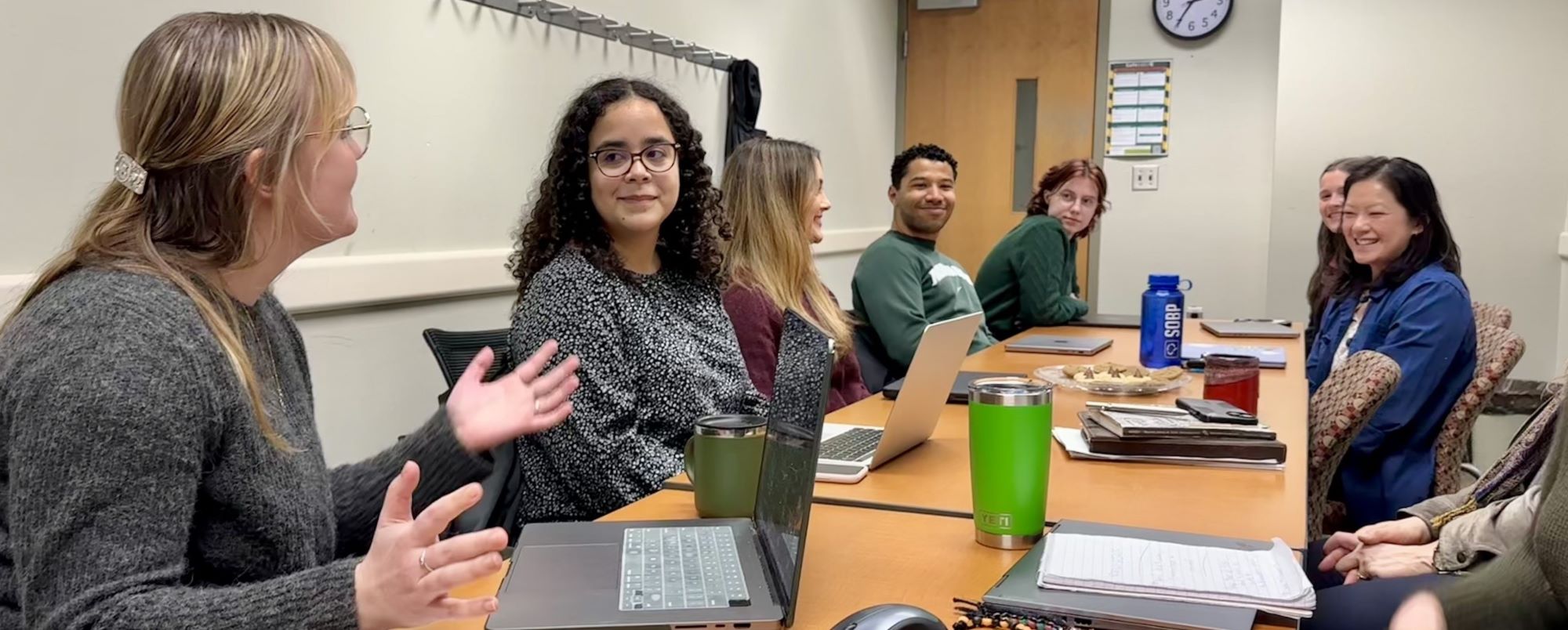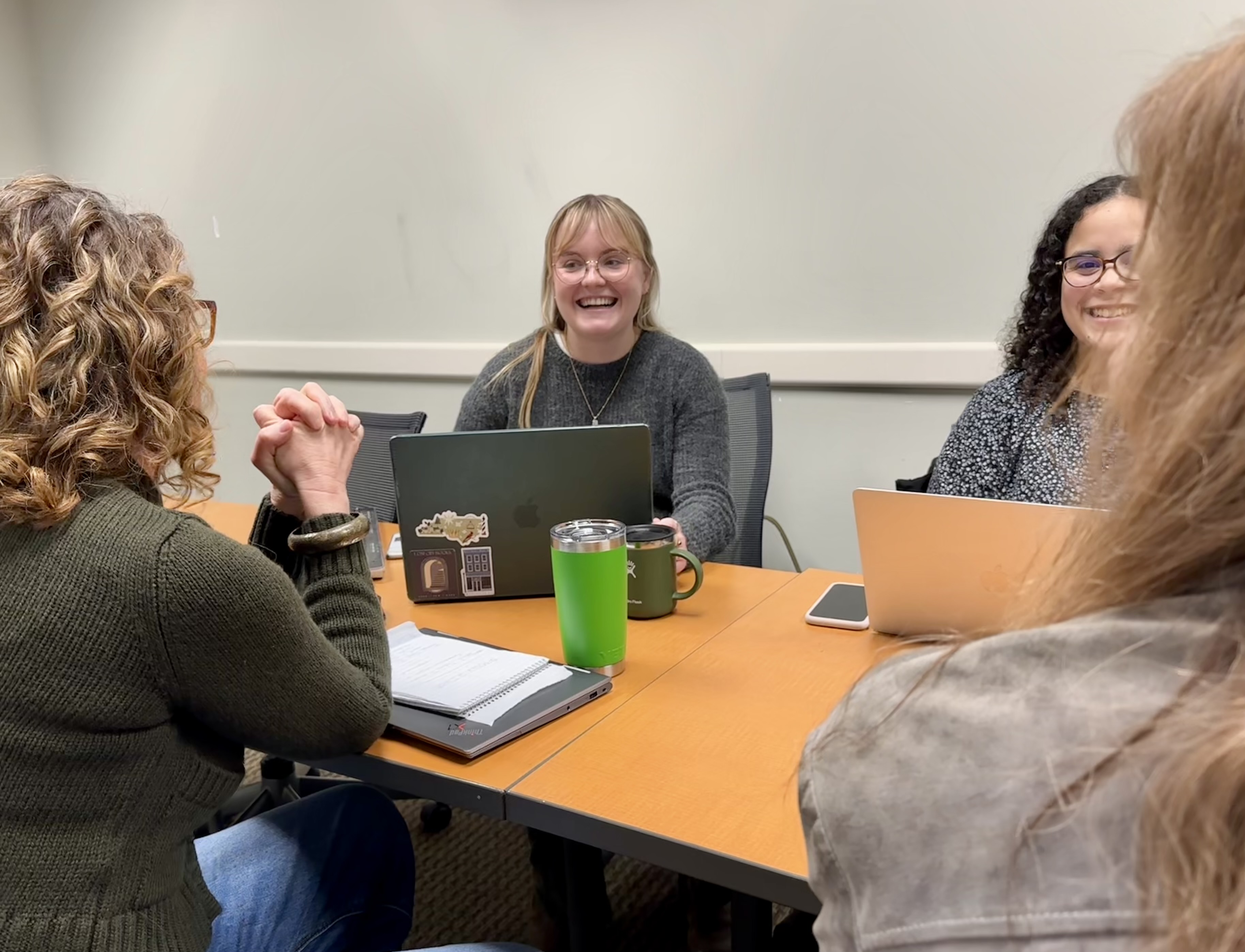A group of MSU Psychology graduate students are bringing their expertise as clinical psychologists to the community, making mental health resources more accessible to those who need them.
This student led initiative, called the Diversity Sciences Committee, aims to bring their specialized skills beyond campus and into the greater Lansing community.
Each year, the committee, which is faculty supported, focuses on different initiatives to address emerging needs and concerns. This year, a subcommittee focuses on caregiving and parenting psychoeducation for local agencies and parents, while another focuses on advocacy work to address food insecurity.
“In Clinical Psychology, we focus a lot of our research on individuals, but a lot of what we do can also be applied to communities with broader implementations,” said Grace Anderson, student co-chair of the committee and third-year clinical science graduate student. “We want to bring mental health care to people who may not have heard about our program or have access to mental health resources like weekly therapy.”
Community focused projects
One of the committee’s goals is to give mental health presentations that are tailored to specific community needs. This year, students presented on caregiver stress and support to the Gilda’s Club in Grand Rapids and the Mid-Michigan Autism Association. They provided practical self-care strategies and focused on locally available resources for caregivers navigating high-stress situations.
“A favorite experience of mine was presenting at Gilda’s Club. We were able to tailor our presentation directly to the needs of the caregivers of people with cancer. Being able to engage with them directly was really special,” said Anderson.
The committee has also partnered with Haven House, an organization that helps Lansing individuals who are experiencing homelessness. The graduate students organized a supply drive for sanitation products and conducted staff training on crisis intervention.
Beyond direct community outreach, the committee also focuses on advocacy work. Recently, they met with the Michigan League for Public Policy to learn about the Michigan government and how to best engage with representatives about issues they are concerned about, like food insecurity.
Looking ahead
Moving forward, the committee is working to expand its reach by recording presentations and making them available online. They hope to encourage other researchers with expertise in different areas of mental health to contribute, creating a library of resources that are accessible for the broader community. They also hope to continue to strengthen relationships with local organizations and increase their advocacy efforts.
Through their work with the Diversity Committee, these graduate students are addressing mental health needs, supporting underserved groups, and influencing future generations of psychologists. By making mental health resources more accessible, they are reaching individuals who might not otherwise have support. Their initiatives also help diversify the field of clinical psychology by encouraging students from underrepresented backgrounds to pursue careers in mental health.
“It’s important to me to be involved in this work because I want to show what clinical work is to people from my background who may not know, and I want to help expand treatment beyond who might typically get it,” said first-year psychology graduate student Naomi Alvarado. “I’ve been on this committee for about six months now, and it’s inspiring to see how much of an impact we’re having each semester.”
This story originally appeared on the Department of Psychology website.

